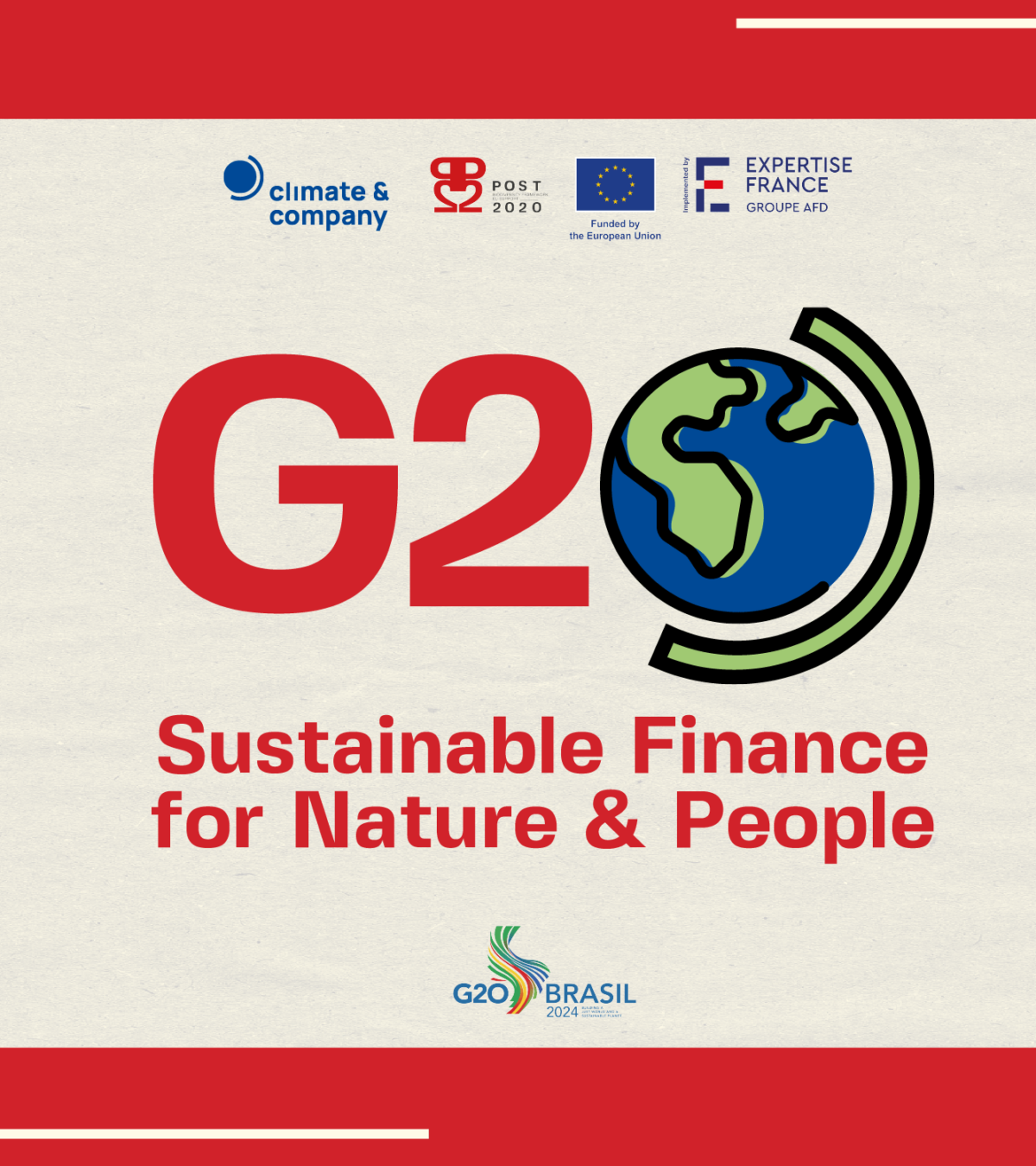When Finance Talks Nature
Sustainable finance taxonomies need to include nature for a truly holistic solution
November 28, 2022
The financial sector and the political sphere increasingly recognise the urgency surrounding the loss of biodiversity and ecosystems. As a result, there is growing pressure on policy makers, central bankers, financial regulators, and supervisors to further integrate nature-related consideration into policy decisions to safeguard biodiversity and ecosystems and, at the same time, guarantee the stability of the financial system.
What?
Sustainable finance taxonomies as a common language to shift trillions towards nature-investments
Together with our partner at WWF France, we are working help policy makers in G20 countries, financial regulators, central bankers and financial supervisors to address nature-related environmental objectives, such as the preservation and restoration of ecosystems and the protection of biodiversity in government-driven sustainable investment and financial risk management frameworks.
Why?
Shift in capital flows is needed to reverse nature loss
Over half the world’s GDP – $44 trillion – is moderately or highly dependent on nature and its services. Without rapid and substantial shifts in capital flows, the loss of ecosystem services and biodiversity will be irreversible, potentially resulting in a destabilisation of our financial system and devastating impacts on the global economy and on humanity. To accelerate this shift, a conducive framework is needed. Sustainable finance taxonomies emerged as one critical tool to provide a framework that defines “what counts as green or environmentally harmful finance”, classifying investments based on environmental performance criteria. Now, for them to inform global financial markets and to facilitate investment in the “green transformation”, national policy action, international alignment and a strong forward-looking perspective of biodiversity finance taxonomies are crucial.
How?
Pushing for interoperability to enhance international alignment
We advocate for policymakers around the world, and especially in G20 countries, to develop financing strategies that are aligned with nature-positive outcomes so that more investment can be funneled towards the conservation and preservation of nature.
An ambitious G20 mandate and roadmap is needed to facilitate policy dialogue on sustainable finance taxonomies
With the increasing trend in the development of sustainable finance taxonomies across the globe, alignment is key to avoid confusion and reduce transaction costs for companies and investors. Without alignment, taxonomies will not live up to the ambition to provide a common language for sustainable finance, will fail to eliminate confusion in international markets, and will fail to tackle greenwashing.
For taxonomies to inform the transition of the entire economy and to go beyond the green niche, they need to adopt a scenario-based, forward-looking perspective
For taxonomies to be relevant for financial institutions, they need to inform environmental risk and impact assessments across entire portfolios, covering all relevant sectors. Using scenarios within sustainable finance taxonomies will be critical to define more ambitious high-level and sectoral targets, to support the required transition to “nature-positive” and to help companies show that – while not yet green – they are on a credible transition path.







